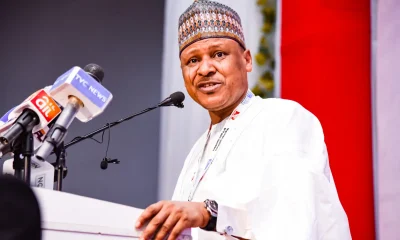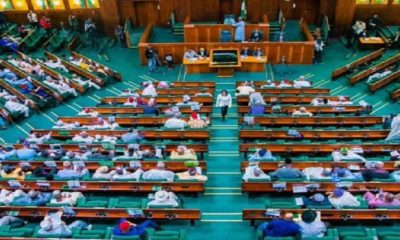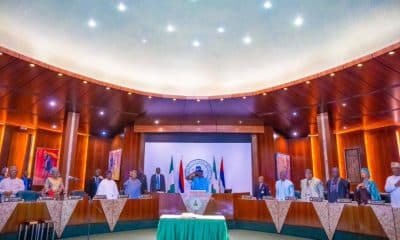Nigeria News
Don’t Downgrade Ministry Of Information – Mohammed Idris To Govs

The Minister of Information and National Orientation, Mohammed Idris, has said the role of the ministry of information in all states of the federation cannot be replaced.
Mohammed Idris said only the Ministry of Information across the 36 states of the country has the critical duty of communicating government programmes and policies to the citizens.
Idris stated this in Kaduna at the 48th National Council of Information and National Orientation with the theme ‘Enhancing Public Information Management for Inclusive Governance: The Renewed Hope Agenda in Focus’, on Friday.
While delivering his address at the event, he explained that the ministry not only communicates government policies but also educates and sensitizes the citizens.
“At this juncture, I would want to make a passionate appeal to some of our state governments, especially on the status and operations of State Ministries of Information.
“And my plea, for emphasis, goes like this: that, in the ever-broadening parameters of governance, the role of Ministries of Information at both the national and state levels cannot be overstated. These Ministries serve as the bridge between government policies and the citizens they are designed to benefit, thereby fostering transparency, accountability, and trust, which are essential pillars of any thriving democracy.
“The Ministry of Information plays a critical role in public sensitization. Through this institution, and the platforms associated with it, governments are able to educate citizens on policies, programmes, and initiatives.
“They also serve as vital platforms for addressing misinformation, which, if left unchecked, can erode public trust and undermine collective progress. In an era where information is both a tool and a weapon, having a dedicated body to manage its dissemination is indispensable,” he said.
The Minister of Information emphasized the need for government at all levels to always consider the welfare of the citizens while making policies.
He noted that democracy also encourages debate and dissent opinions on issues and policies of government as could be observed in President Bola Tinubu’s Tax Reform Bills. He said such debates are necessary for policy formulations and implementations.
“In every democracy, the strength of governance is deeply rooted in its ability to reflect the will and aspirations of the people. Public policies, while crafted with the best intentions, must continuously evolve to meet the dynamic needs and expectations of the citizens they serve. It is within this context that public debate plays a pivotal role.
“For instance, you are all aware that we are currently witnessing robust debates on the Tax Reforms proposed by President Tinubu. Such debates are necessary in policy formulation and implementation in order to foster a transparent exchange of ideas, where citizens, civil society organizations, and other stakeholders can voice their opinions, and provide constructive feedback on the reform proposal of the President,” he stated.
Idris further called on Commissioners of Information to rise against fake news by equipping staff in their ministries with the necessary skills needed to fight misinformation.
“In an era where fake news, propaganda, and biased reporting can significantly influence public opinion and decision-making, media literacy fosters critical thinking. It helps individuals analyze the intent behind media messages, understand the context in which they are presented, and assess their accuracy and relevance.
“I will therefore urge the Commissioners for Information to take advantage of this very important Institute once it takes off, in order to further build the capacity of our staff in combating the menace of fake news, misinformation, and disinformation,” Idris added.












